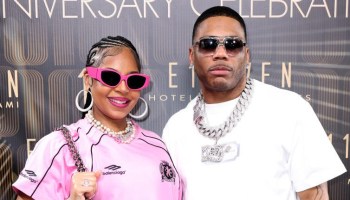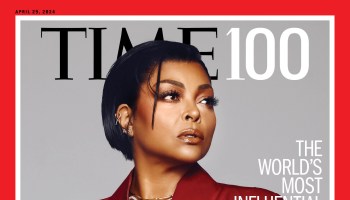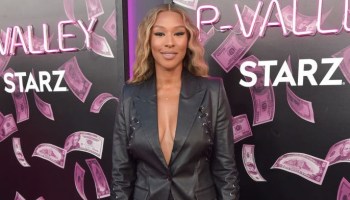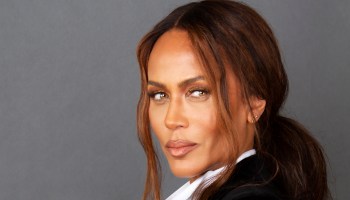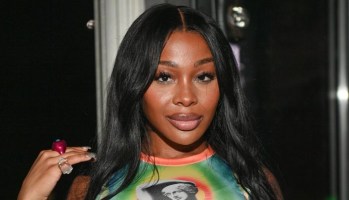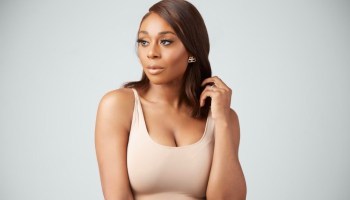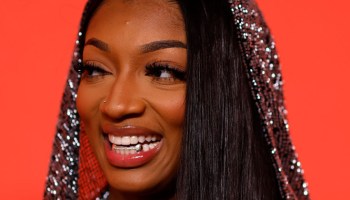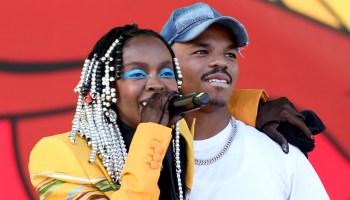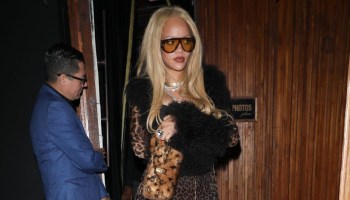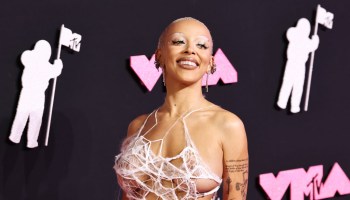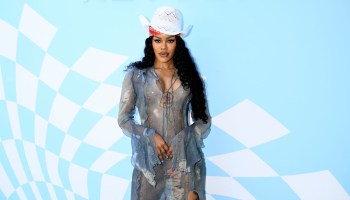
Source: Santiago Felipe / Getty
October is National Breast Cancer Awareness Month and with news that Mathew Knowles has been diagnosed with breast cancer, it’s clear that this disease does not discriminate against gender.
On Wednesday (Oct. 2), the music producer and former Destiny Child’s manager was a guest on Good Morning America sharing his own personal story. In a sit-down with Michael Strahan he opened up about what having breast cancer means to him and when he first noticed that something was wrong.
“I noticed because I wear white T-shirts. I had a dot of blood on my T-shirt.The first day I was like “Oh, OK, no big deal … maybe it’s something that just got on my T-shirt.” Second day I looked and the same thing and I was like, “Eh … interesting.”
We also shared that he had a robust family history of this disease, but was confused about what that meant for him.
“My mother’s sister died of breast cancer, my mother’s sister’s two and only daughters died of breast cancer and my sister-in-law died in March of breast cancer with three kids – a 9-, 11- and a 15-year-old — and my mother-in-law had breast cancer. So breast cancer has been all around me. My wife’s mother has breast cancer, too,” he said.
When he received his BRCA results, a genetic test used to determine a person’s chance of developing breast cancer, he learned that he had a mutation on his BRCA2. He said the first calls he made were to his adult children, Beyoncé, 38, and Solange, 33, and his former wife Tina Knowles Lawson.
Take a look:
Like actor Richard Roundtree, Knowles debunks the pesky myth that men are not at risk for breast cancer. Yet, according to the National Breast Cancer Society, it is rare though in men. male breast cancer is very rare. Less than one percent of all breast cancer cases develop in men, and only one in a thousand men will ever be diagnosed with breast cancer.
Knowles just happens to be one of that one-percent.
So in the spirit of correction mistruth, here are 13 other breast cancer myths you have to stop believing STAT:
1. Myth: Exposing a tumor to air during surgery causes cancer to spread
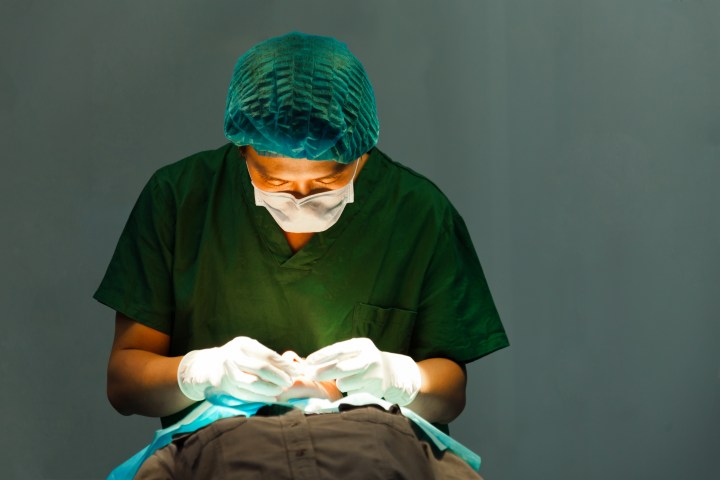 Source:Getty
Source:Getty
Surgery doesn’t cause breast cancer or cause it to spread in the body. Doctors are capable of finding cancer in the body through surgery. Some studies have found that by removing the tumor it can cause growth. (Source: Health.com)
2. Myth: Women with small breast have a lower chance of getting breast cancer
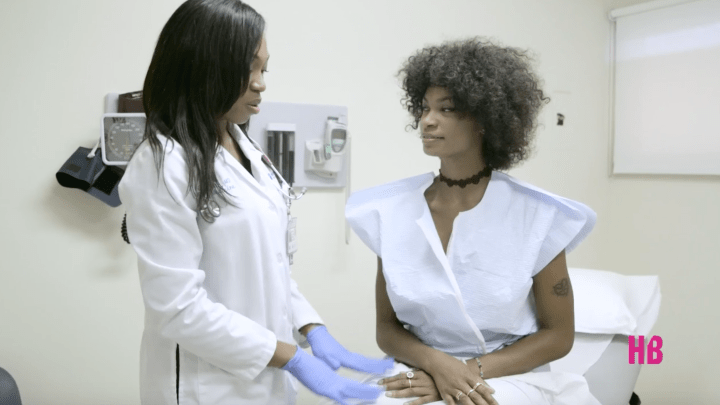 Source:iOne
Source:iOne
There is no correlation between breast size and cancer. In terms of examination, large breasts may be harder to examine even with exams and mammograms. All women should get screened. (Source: Health.com)
3. Myth: Breast implants can raise the risk of getting breast cancer
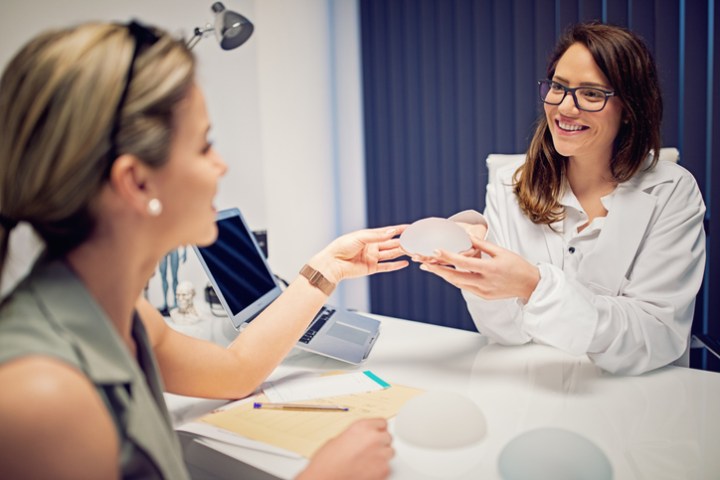 Source:Getty
Source:Getty
Research has shown that women with breast implants are not at risk of getting breast cancer but that taking mammograms may be a little harder for them. (Source: Health.com)
4. Myth: You can’t get cancer after a mastectomy
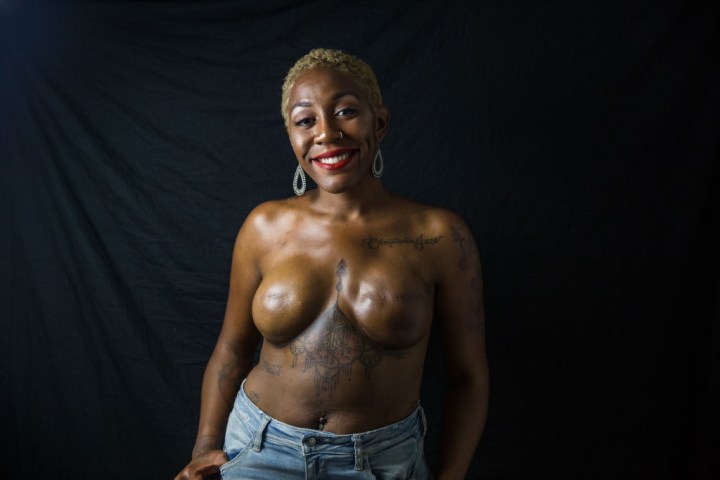 Source:Getty
Source:Getty
Some women get breast cancer even after getting their breasts or breast removed. In a lot of cases, they get breast cancer in the place where it was removed. (Source: Health.com)
5. Myth: Getting annual mammograms exposes you to radiation that can cause breast cancer.
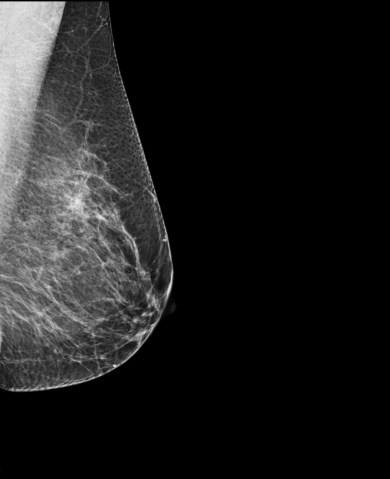 Source:Getty
Source:Getty
Radiation is used during mammograms, but the amount is very little and poses no risk. Mammograms are good at finding lumps that couldn’t be found during self-examinations. Women at the age of 40 and above should have a scheduled mammogram every one to two years. (Source: Health.com)
6. Myth: Hair straighteners can cause cancer in African American women
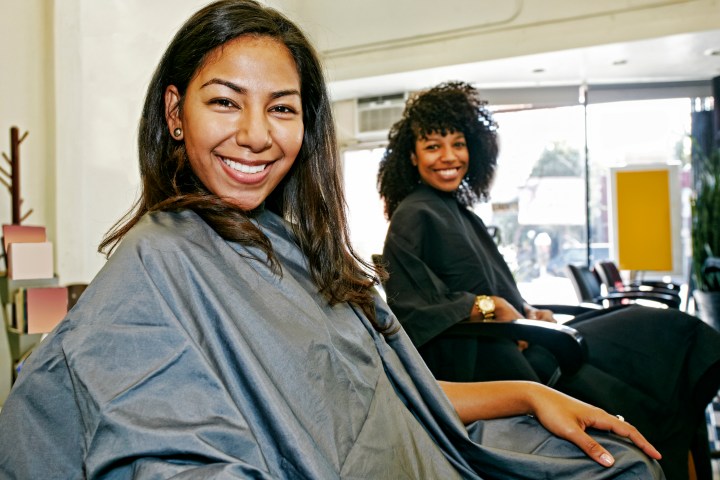 Source:Getty
Source:Getty
A 2007 study by the National Cancer Institute found no increase in breast cancer risk due to relaxers or hair straighteners. The study had African American women who have used straighteners regularly for years. (Source: Health.com)
7. Myth: Having an Abortion Raises Your Risk of Breast Cancer
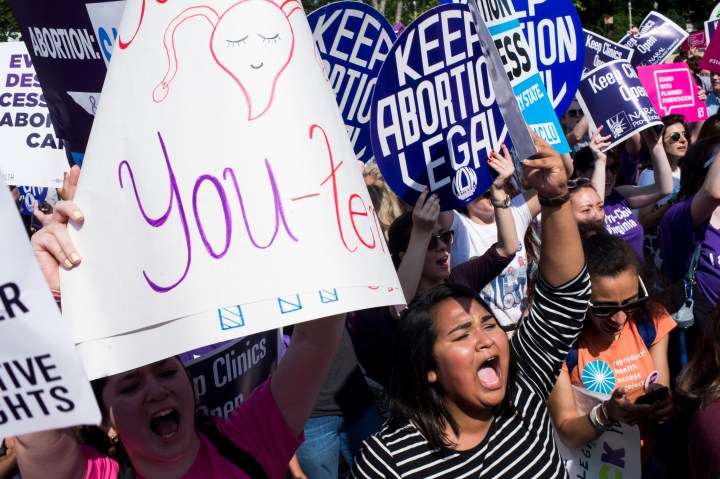 Source:Getty
Source:Getty
While the Pro-Life Movement will spread this lie, it just isn’t true. Abortion is believed to interrupt hormone cycles during pregnancy and breast cancer is linked to hormone levels. But studies have not been able to find any relationship between the two.
8. Myth: Only Older Women Need to Worry About Cancer
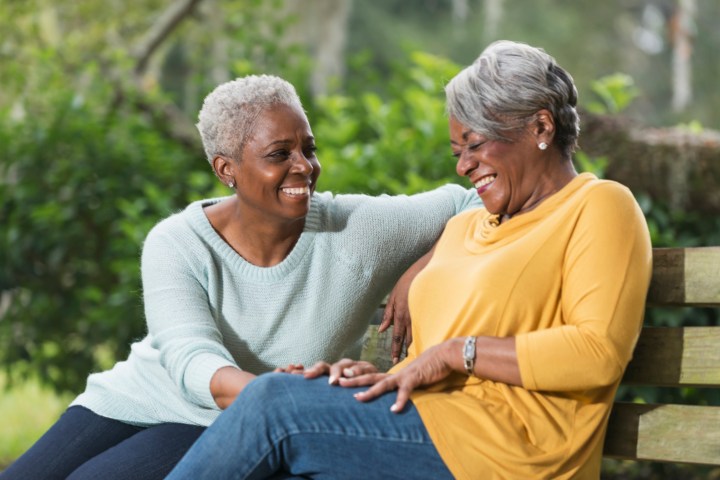 Source:Getty
Source:Getty
While age is a major risk factor in who develops breast cancer, it isn’t the end all be all. Actually, Black women tend to develop this disease younger than white women—as young as our early 30s in some cases. So don’t sleep on doing your home breast checks and talking to your doctor about the best age for you to get screened.
9. Myth: You Are Only At Risk if You Have a Family History
 Source:Getty
Source:Getty
Not so fast: Yes, having a mom, sister, child, who has had breast cancer, does double your risk, that doesn’t mean without that, you are in the clear. About 70 percent of women diagnosed with breast cancer have no family history.
10. Myth: Fertility treatments increase the risk of getting breast cancer.
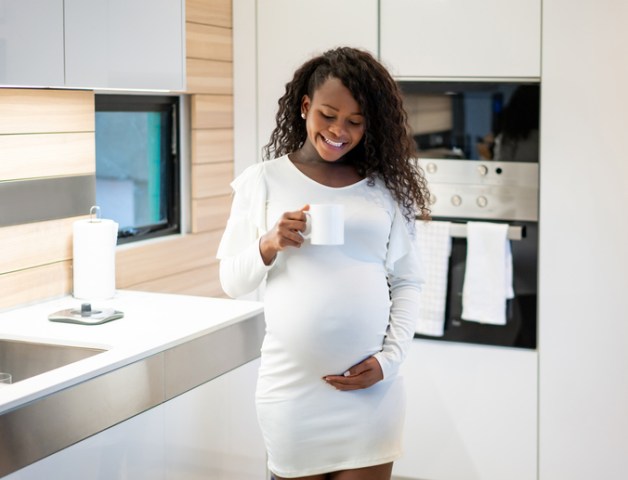 Source:Getty
Source:Getty
Although estrogen has been connected to breast cancer, fertility treatments have been called into question. Studies have shown that prospective mothers are likely to have no higher risk of breast cancer. (Source: Health.com)
11. Myth: Your caffeine habit increases your risk of developing cancer.
 Source:Getty
Source:Getty
There’s no link between caffeine and breast cancer, so you can keep tossing back your morning cup of Joe. However, doctors are still studying the link between caffeine and breast soreness.
